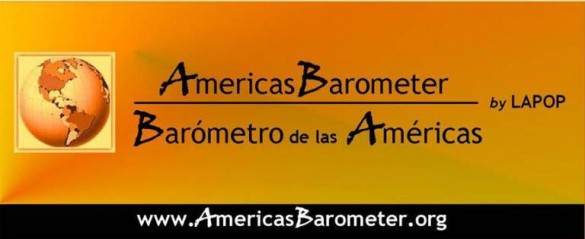Discriminatory attitudes against women, homosexuals and people with darker skin tones and other barriers to opportunities remain common in the Americas, according to responses to the 2012 AmericasBarometer survey by Vanderbilt University’s Latin American Public Opinion Project (LAPOP).
Those findings are among the trends that can be discovered in the large database created by the work of hundreds of LAPOP-associated partners and interviewers in 26 countries this year.

“We are delighted to present the results of the fifth round of AmericasBarometer,” said Mitchell A. Seligson, director of LAPOP and Centennial Professor of Political Science at Vanderbilt. “This round, we tackle a fundamental problem in the Americas: the tremendous gaps in opportunities experienced and resources available to the region’s citizens.”
The data generated by the massive polling project is available free of charge to other researchers and – for the first time – the general public at the LAPOP website. In addition, LAPOP researchers will work with the data to generate regular reports in the project’s Insights series spotlighting conditions in the separate countries represented.
More than 41,000 citizens in 26 countries of the Americas were polled, from northern Canada to the Chilean Patagonia, from bustling Caribbean cities to the rural Andean highlands. In each country, the surveys create a representative portrait of national public opinion. The interviews were administered during face-to-face interviews, except in the case of the United States and Canada, where interviews were conducted via the Web. In the majority of countries, data was collected using smartphones with software produced by members of LAPOP’s extended team.
“These devices streamline data entry, prevent skipped questions and thus enable us to maximize quality and minimize error in survey data,” said Elizabeth Zechmeister, associate director of LAPOP and associate professor of political science at Vanderbilt.
Among the findings that will be investigated further by LAPOP and other researchers as they analyze the rich dataset are:
– Nearly a third of citizens in the Americas believe men deserve priority for jobs over women when times are tough;
– One of every four people the average woman encounters in the Americas considers her less capable as a political leader than a man;
– Approximately 10 percent of the population carries discriminatory views against political leadership by those who are dark-skinned and even greater percentages disapprove of political leadership by gays and/or disabled individuals; and
– People with darker skin tones continue to face across-the-board inequities in education, income and even obtaining enough food to eat in many countries.

LAPOP, founded more than two decades ago, is hosted and supported by Vanderbilt University. The United States Agency for International Development (USAID) has provided the principal funding for carrying out these studies, with generous ongoing funding provided by Vanderbilt University and the Tinker Foundation. Other donors in 2012 are the Inter-American Development Bank, the United Nations Development Programme, the World Bank, the Swedish Embassy in Bolivia, the Brazilian Conselho Nacional de Pesquisa, and Duke University.